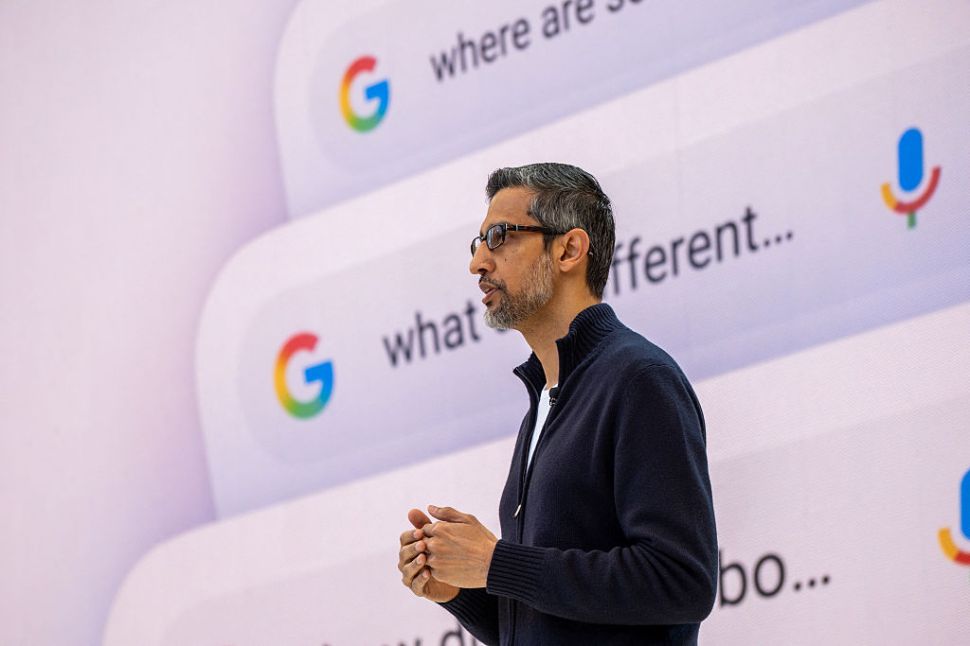Google CEO Sundar Pichai addresses the crowd” width=”970″ height=”647″ data-caption=’Sundar Pichai is focused on growth rather than downsizing for efficiency <span class=”lazyload media-credit”>CAMILLE COHEN/AFP via Getty Images</span>’>
At a time when Big Tech companies like Meta, Amazon and Microsoft slash thousands of engineering jobs and replace them with A.I., Google is looking to expand its engineering team, CEO Sundar Pichai said at Bloomberg Tech Summit in San Francisco yesterday (June 4). “I expect we will grow from our current engineering base even into next year. It allows us to do more with the opportunity space,” Pichai told Bloomberg’s Emily Chang during an onstage interview.
Pichai sees A.I. as an opportunity to boost productivity without eliminating human talent. Google is using A.I. to handle repetitive tasks like boilerplate coding, allowing engineers to focus on more impactful work. “I just view this (A.I.) as making engineers dramatically more productive, getting a lot of the mundane aspects out of what they do,” Pichai said. “A.I. serves as an accelerator rather than a replacement for human talent, enabling the company to pursue greater opportunities in emerging technology sectors.”
More than 30 percent of Google’s code is now A.I.-generated, according to Pichai. However, this shift is driving demand for more human engineers to guide, verify and build on what A.I. creates. Pichai’s optimistic outlook contrasts sharply with the industry’s recent mood. Despite rounds of restructuring at Google, Pichai is focused on growth rather than downsizing for efficiency.
“We are definitely investing for the long run in A.I.,” he said, citing a planned $75 billion in capital expenditures for 2025. “The A.I. opportunity is bigger than the opportunity we had in the past.”
Still, Pichai tempered his optimism by acknowledging the current limits of A.I. While systems like Gemini are becoming more powerful and creative, they still make basic errors and aren’t ready for full autonomy. “Even the best models still make basic mistakes,” he said, warning against overestimating current systems. “So are we currently on an absolute path to AGI? I don’t think anyone can say for sure.”
In response to recent predictions by Anthropic CEO Dario Amodei, who suggested A.I. could eliminate half of all entry-level jobs within five years, Pichai pushed back. “We’ve made predictions like that for the last 20 years about technology and automation, and it hasn’t quite played out that way,” he said.
Pichai also pointed to Google’s continued innovation across sectors—such as self-driving technology via Waymo, quantum computing and YouTube’s growth in international markets like India—as evidence that engineering talent remains essential. “These are long-term bets,” he said. “And they all depend on having great people behind them.”

